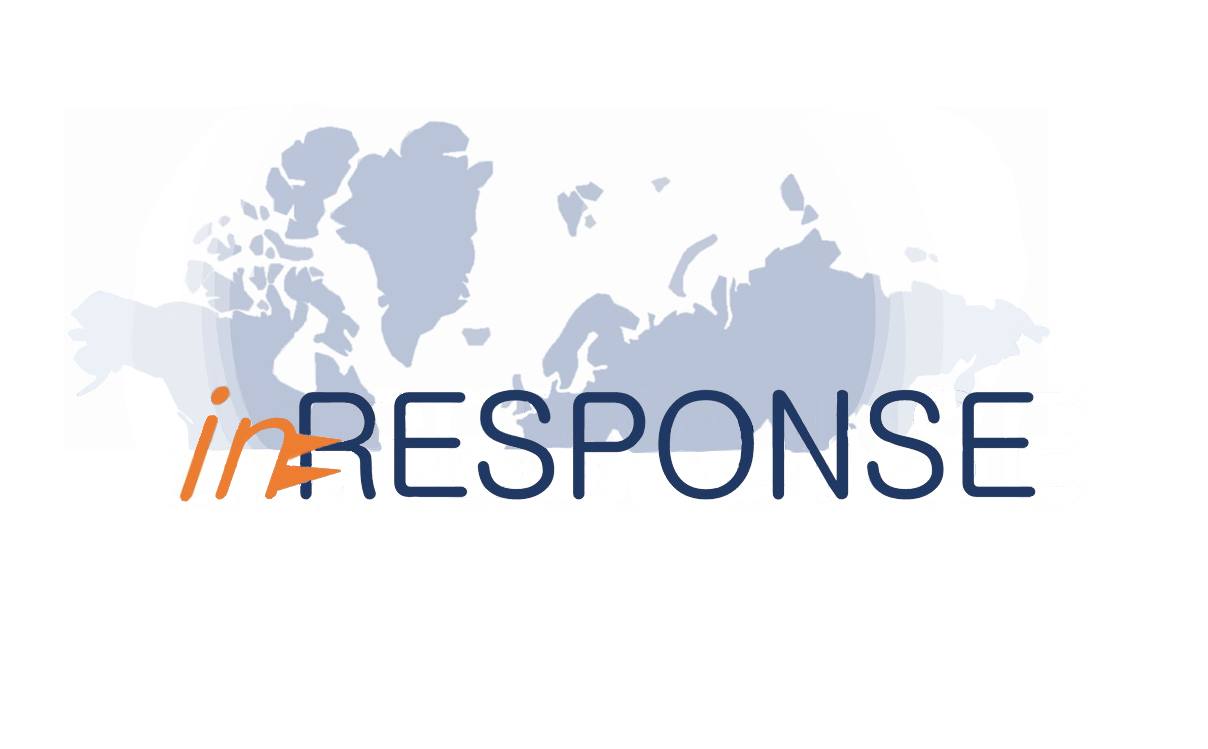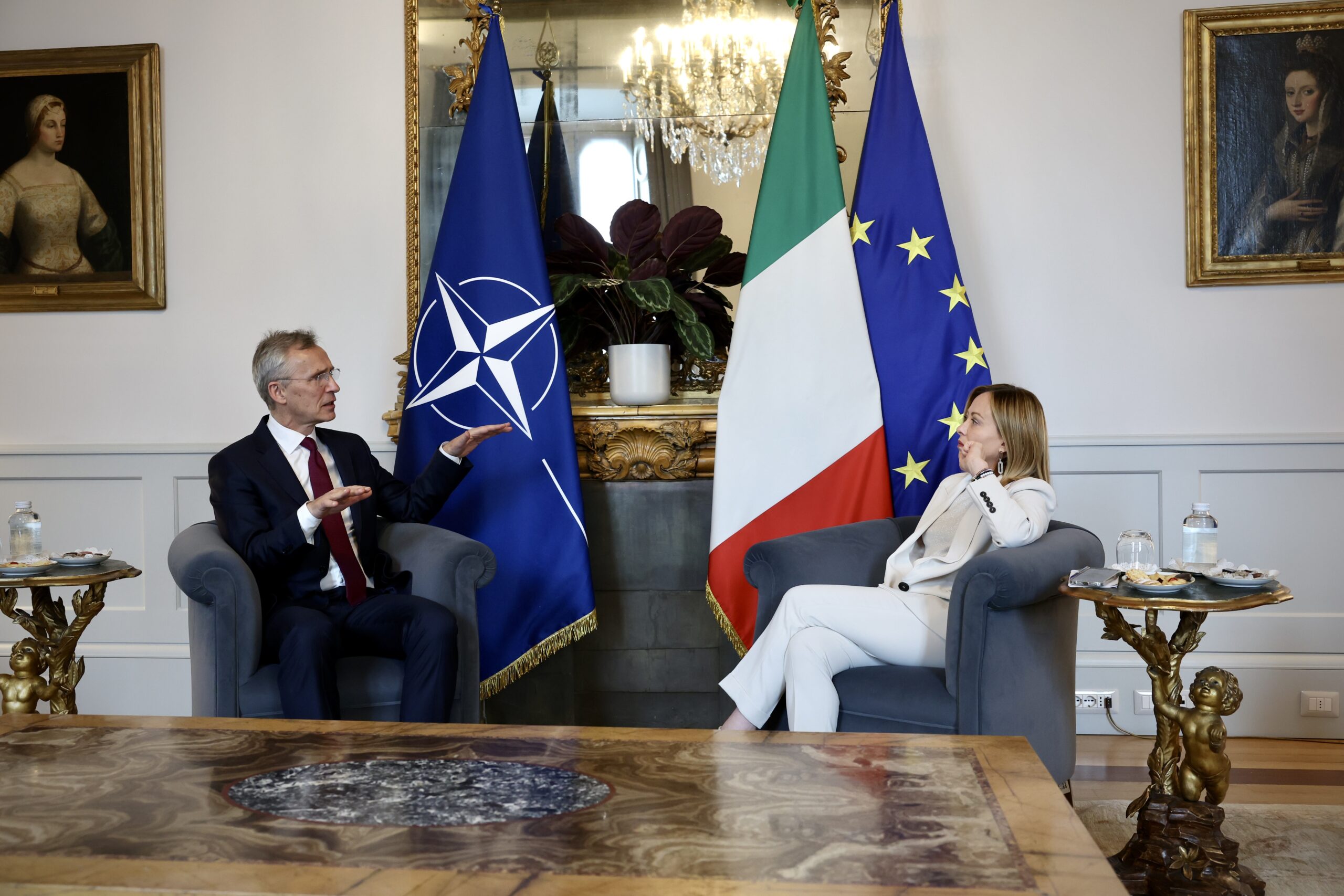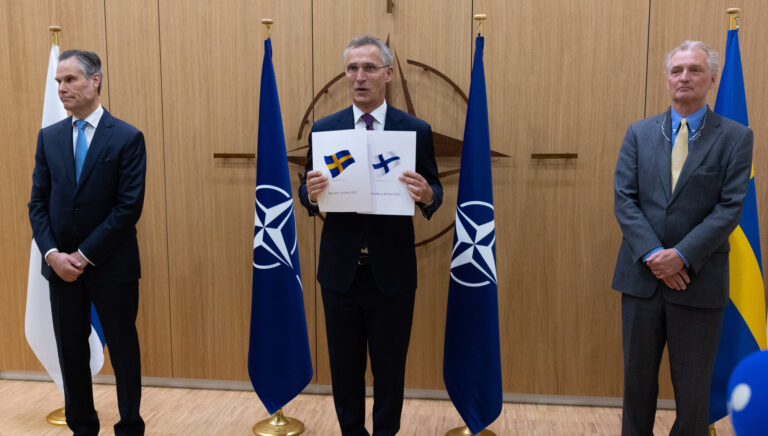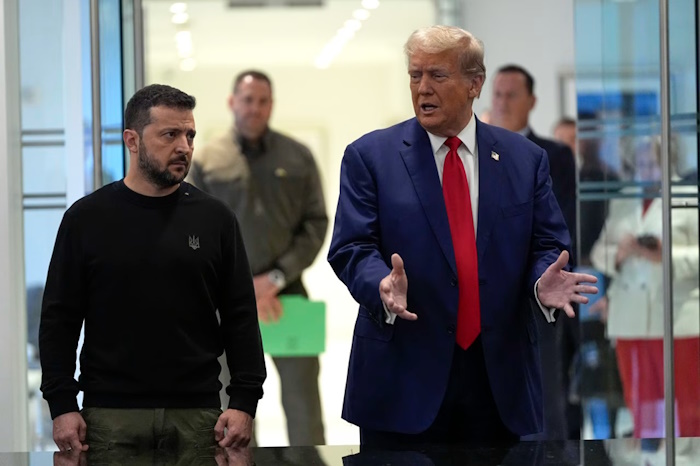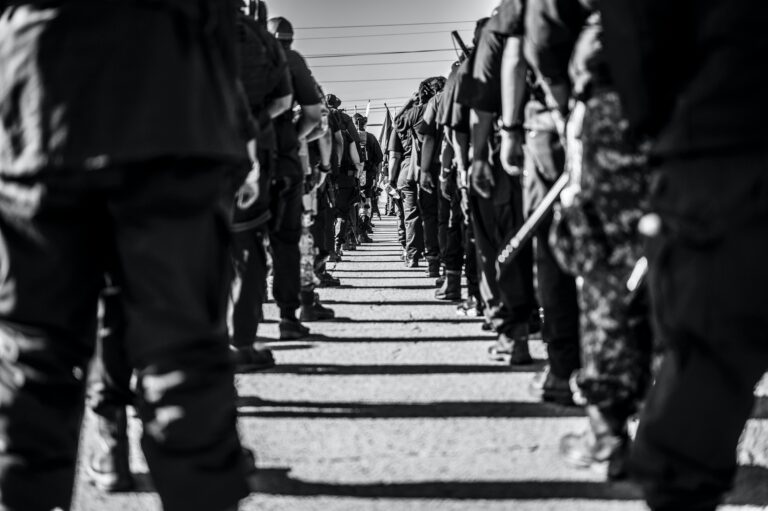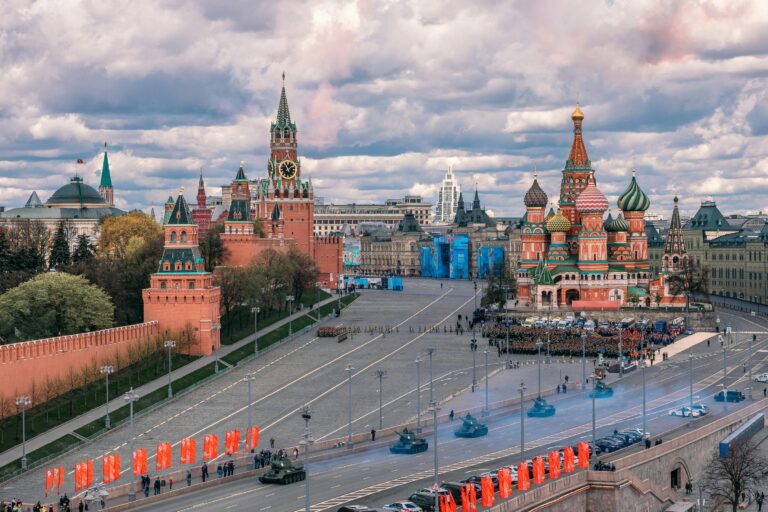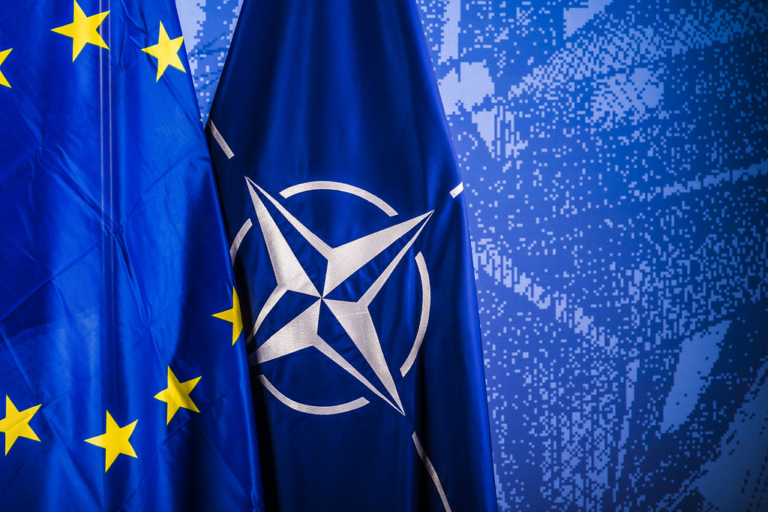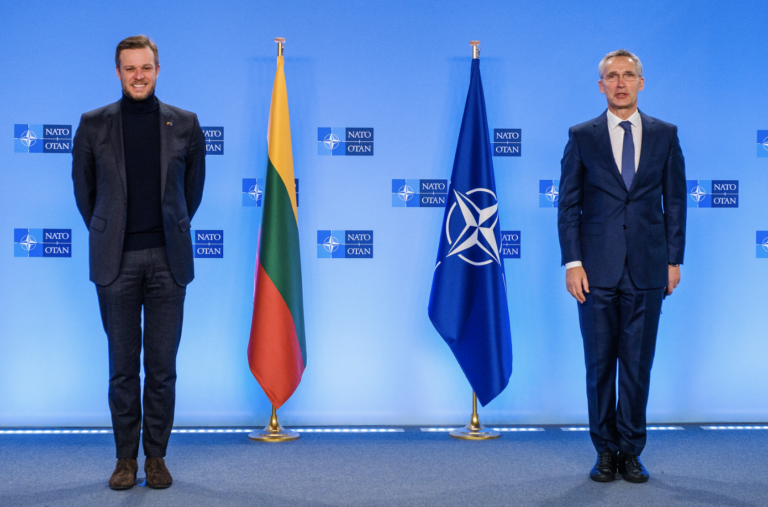Italy in the EU and NATO: Muddling through the changing European security landscape
by Raffaele Mastrorocco, Researcher at the Department of Political and Social Sciences of the European University Institute
Following the Russian invasion of Ukraine in 2022, Italy faced a fundamental question: how to navigate the changing European security context amid renewed military threats from the East? Traditionally, Rome’s security priorities focused on the Southern neighbourhoods of NATO and the EU, but with the war, it aligned itself with multilateral efforts to address insecurity from the East. Italy, however, remained concerned with how to tackle its security priorities within both organizations, aiming to balance their assessments of European security.
In this context, Italy muddled through the changing European security landscape to support Ukraine and, at the same time, steer the EU and NATO toward increasing their activities related to the South. In its endeavour, the various executions of EU and NATO security mandates allowed Rome to address key areas through which it could promote its interests.
Italy’s initial response to the Russian invasion of Ukraine
The Italian government adjusted its response to the evolving European security landscape as the war progressed. Under the government led by Mario Draghi, Italy firmly aligned with the Euro-Atlantic camp, and it started supplying weapons to Kyiv. It supported similar EU efforts through the European Peace Facility (EPF), whose activities were strongly tilted in favour of assisting Ukraine, and coordinated non-lethal weapon supplies through NATO and the Ramstein Group. It also contributed to NATO’s deterrence policy by increasing its presence on the Eastern flank and leading NATO’s forward presence in Bulgaria.
Despite challenges such as energy dependence on Russia, high inflation, and political opposition to supporting Ukraine, Draghi’s government prioritized responding to Russian aggression. However, this line shifted focus as the war prolonged and following the 2022 parliamentary elections.
The Meloni government and support to Ukraine
The new government, led by Giorgia Meloni, matured Italy’s approach, claiming that, while critical, Ukraine did not constitute the sole challenge faced by EU and NATO states. Meloni devised Italy’s EU and NATO policies paying particular attention to their initiatives supporting Ukraine, their capabilities to boost its defence sector, and their tasks.
The Meloni government sought to continue previous Italian policies towards Ukraine by relying on existing EU efforts. Meloni prioritized Ukraine under Italy’s G7 presidency and demonstrated her support by working to convince Hungary to agree to a €50 billion multiyear EU aid package to Ukraine. She even showed Italy’s support to Ukraine against French and German efforts to impose their interests – as exemplified by a private dinner between Macron, Scholtz, and Zelensky in 2023 and, more recently, with Scholtz’s call to Vladimir Putin.
However, Italy underscored its military support to Ukraine as it continued contributing to EU assistance measures and approved new military packages. At the same time, divisions among coalition partners on Ukraine caused the government to refuse to allow Ukraine to strike Russian territories with Italian weapons. The Italian support to Ukraine, hence, remained overall restrained and reliant on existing EU initiatives.
In NATO, the government followed existing solidarity initiatives to demonstrate its contribution to the organization, which the government deemed important in light of Italy’s structural difficulties in increasing its defence budget, constantly below the 2%target and for which it started blaming the strict EU fiscal policies.
Thus, it maintained its support for NATO’s deterrence measures and assistance to Ukraine, even increasing its contribution to NATO missions by taking the command of KFOR. It also secured the appointment of former Chief of Defence Giuseppe Cavo Dragone as NATO Military Committee Chair. The government also sought to improve its alignment with the US by increasingly addressing Indo-Pacific issues within NATO, stressing their consistency with its obligations.
Building on EU and NATO capabilities in the defence sector
Since EU and NATO states started addressing their defence supply deficiencies revealed with the war, Italy seized the opportunity to bolster its defence industries by building on the EU and NATO’s respective capabilities in the defence sector.
The Meloni government recognized the EU’s regulatory and economic capabilities and advocated for greater integration, including EU defence bonds. Rome also supported the development of the common procurement instrument EDIRPA and the European Defence Industry Programme to enhance its defence procurement strategy. However, the Italian government remained cautious about increasing the defence industry competences of an EU commission short of Italian representatives in the policy’s key positions. At the same time, Italy encouraged the development of the EU Ukraine Facility and suggested hosting the Ukraine Recovery Conference in 2025 to favour its broader industrial sector, such as its energy giant ENI which has pledged to reconstruct Ukraine’s energy sector.
NATO’s defence innovation capabilities also attracted Italy’s interest. Italy already contributed to the Defence Innovation Accelerator (DIANA) by providing accelerator systems and test centres for aerospace innovation. In early 2023, the Meloni government significantly increased its resources to the newly established NATO Innovation Fund, which will benefit national defence companies such as Leonardo, showing its appreciation of NATO’s innovation efforts.
Pivoting NATO and the EU toward Africa
The Meloni government aimed to refocus EU and NATO priorities towards the South, tailoring its efforts according to each organization’s tasks in Africa.
Italy tapped into the EU security and defence instruments to increase its focus on Africa. Together with Spain, Italy endorsed a policy of engagement to keep the EU’s presence in the region even after the military coups in Mali and Niger, despite France’s and some Central and Eastern European states’ reluctance to do so.
Meloni also relied on EU institutional actors to raise the South’s security challenges on the agenda. Collaborating with EU Commission President Von der Leyen, Meloni spearheaded the EU-Tunisia agreement, which bypassed EU ambassadors, and pushed for a strategic agreement with Egypt, which Meloni and other EU leaders visited to seal off the deal which foresaw, among other things, the employment of the EPF. The 2024 Italy-Africa Summit further demonstrated Meloni’s ability to bring high-level EU officials at the table to discuss partnerships in the African continent.
In NATO, whose role in Africa is often deemed inappropriate, Italy worked to change the mindset towards Southern security challenges. The government, partnering with Spain and Portugal, somewhat convinced reticent states like the US, Canada, and Central and Eastern European countries to discuss NATO’s role in the region by also arguing that Russian and Chinese presence in Africa affects Transatlantic security. These efforts led to the establishment of an expert group on the Southern neighbourhood and the appointment of a special representative for the region. However, Italian lawmakers were irritated when this appointment went to a Spanish diplomat, reflecting Italy’s bid for NATO’s renewed attention to Africa.
Conclusions
The post-Russian invasion of Ukraine prompted a middle power like Italy to figure out how to balance its national priorities with the transforming European security landscape. Italy’s approach demonstrated its ability to muddle through multilateralism in Euro-Atlantic settings under geopolitical stress while still pursuing its own priorities. However, the European security landscape will continue to change. With Trump’s re-election and the escalation of the conflict between Russia and Ukraine, the Italian government might need to revise its multilateral game as it will need to navigate difficult waters.
Picture. Source: Flickr, NATO – Creative Commons
The views, thoughts, and opinions expressed in the blog posts belong solely to the authors, and are not necessarily representative of the Institut Barcelona d’Estudis Internacionals (IBEI) nor the Spanish Ministry of Science and Innovation. The content provided through our blogs is for informational purposes only. Readers are encouraged to consider the context and research behind the viewpoints shared within each blog post.
